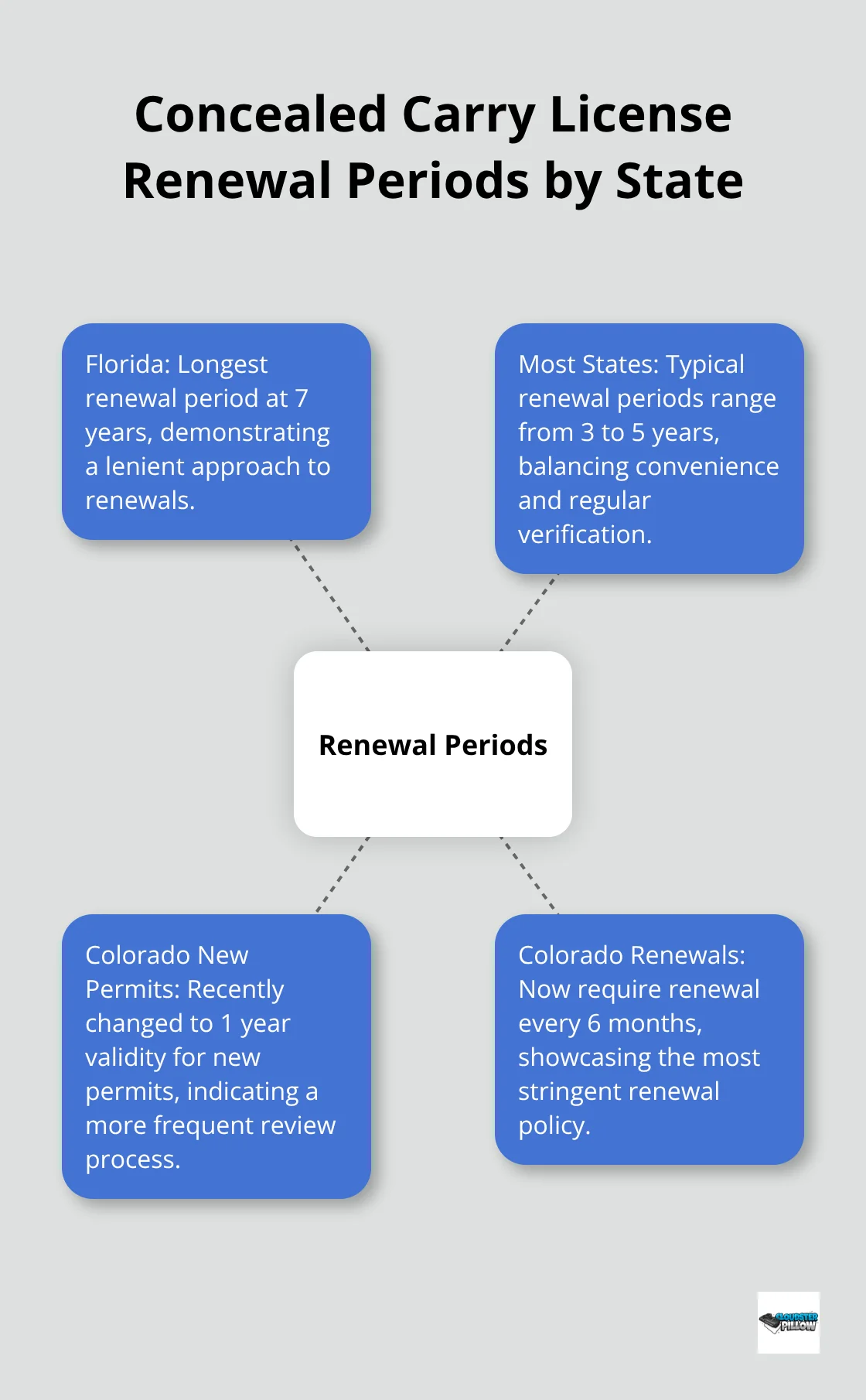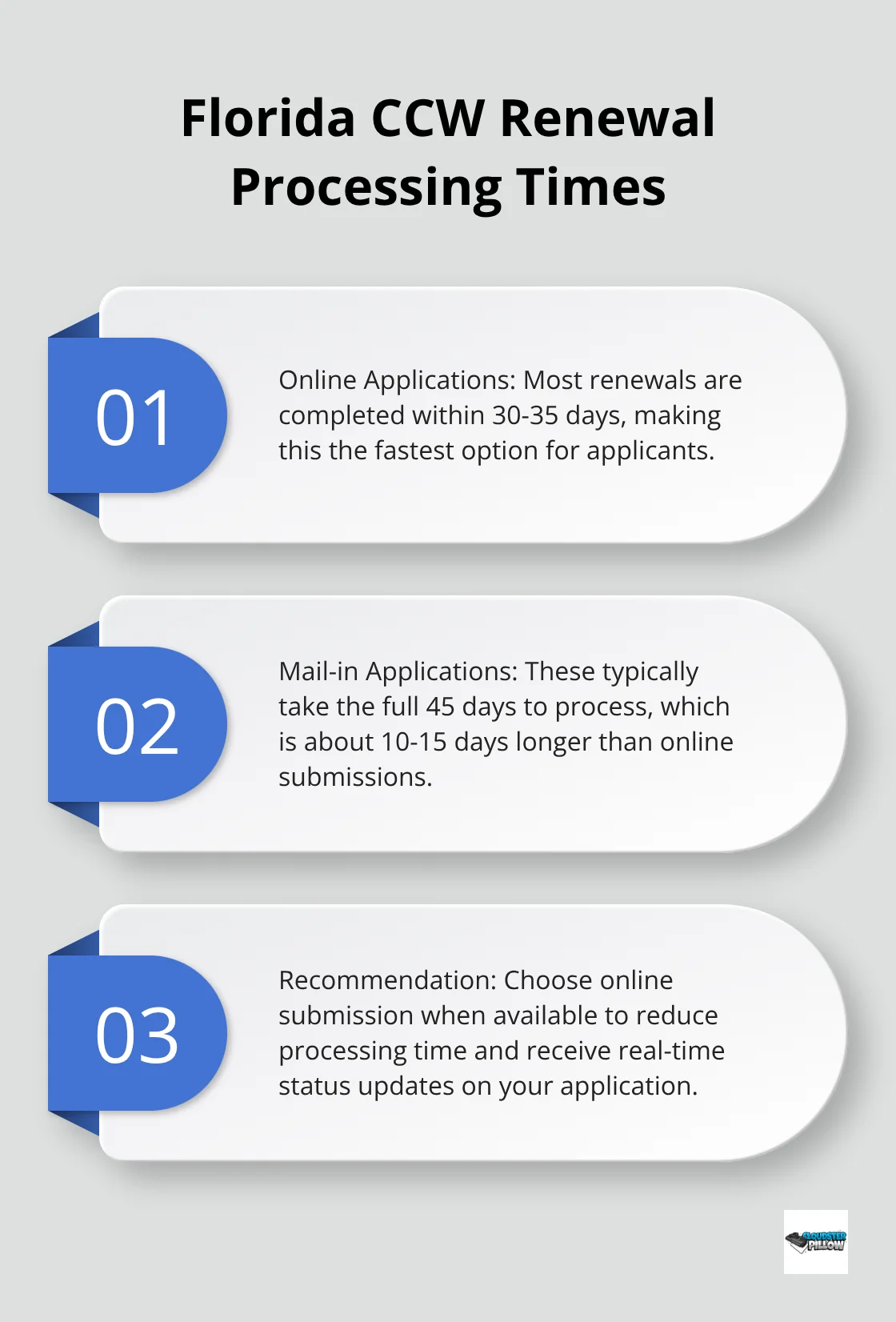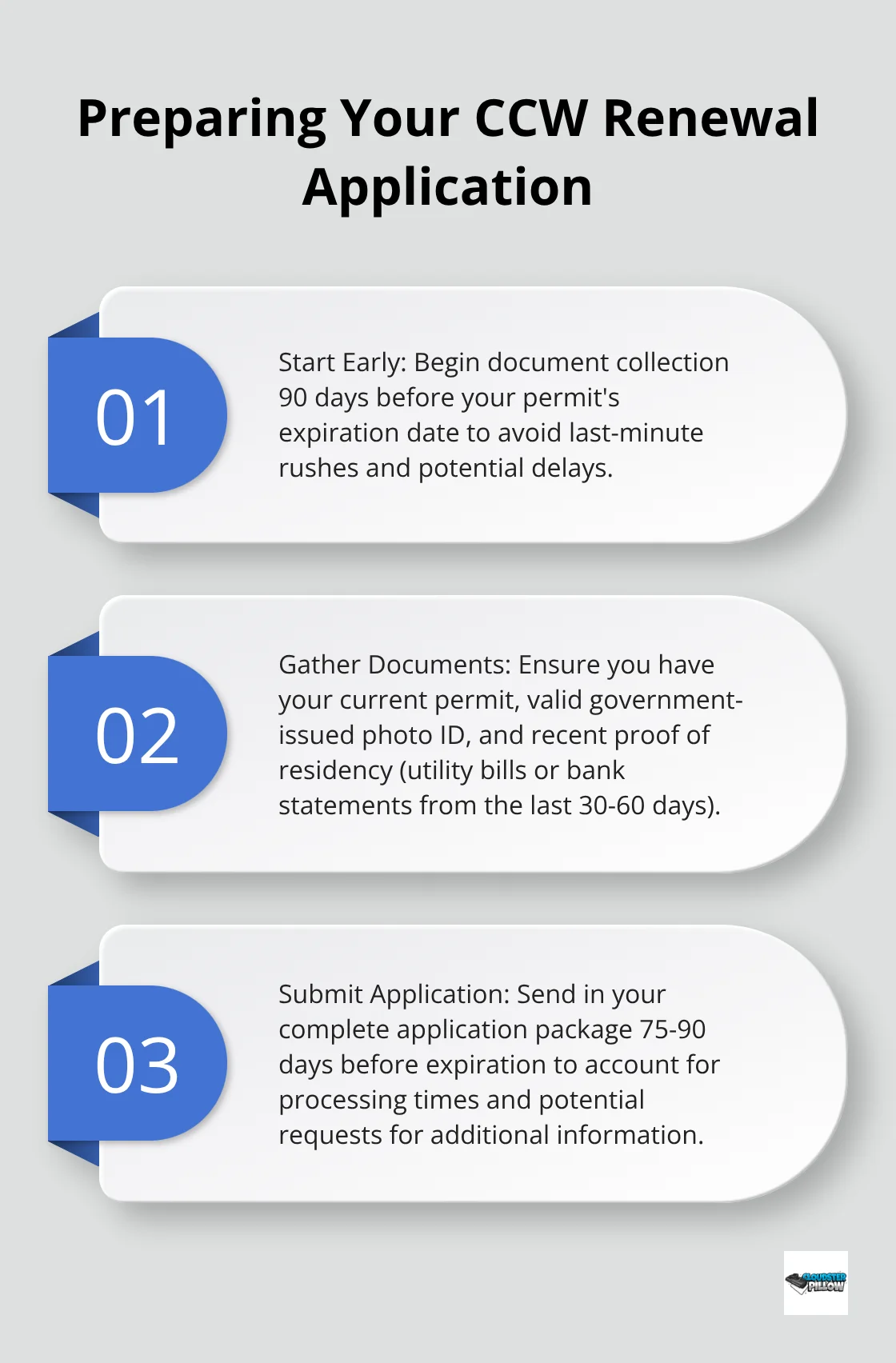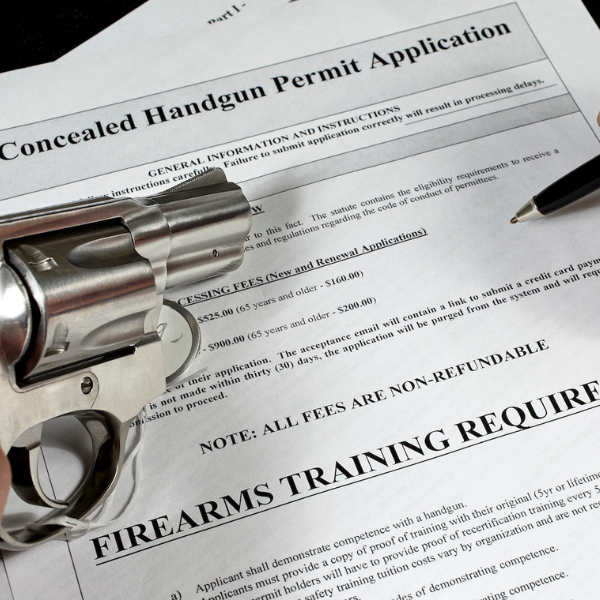CCW Courses and Tips, Licensing and Cost-Saving Tips
What You Need to Know About Your Concealed Carry License Renewal
Your concealed carry license renewal deadline is approaching faster than you think. Most states require renewal every 3-5 years, and missing that deadline means losing your legal carry privileges.
We at Cloudster Pillow know how stressful the renewal process can feel. The good news is that staying ahead of requirements and deadlines makes renewal straightforward and stress-free.
What Are Your State’s Renewal Requirements?
Each state operates under different renewal timelines that directly impact your carry status. Florida leads with the longest renewal period at seven years, while most states require renewal every three to five years. Colorado recently changed its requirements, now mandating new permits valid for only one year and renewals valid for six months.

The Florida Department of Agriculture and Consumer Services reports approximately 2.5 million concealed weapon license holders in the state. This demonstrates how millions of Americans navigate these varying requirements annually across different jurisdictions.
Documentation Standards Across States
Most states require your current permit, government-issued photo identification, and proof of residency through a driver’s license or utility bill. Florida streamlines the process by eliminating new fingerprints for renewals, while other states mandate fresh background checks and updated fingerprints with each renewal.
Colorado now requires completion of a two-hour live-fire refresher course for all renewal applications. The renewal fee varies significantly by state, with Florida charging just $15 compared to higher fees in other jurisdictions (some states charge over $100). Processing times average 45 days in Florida and up to 90 days in Colorado.
Background Check and Eligibility Standards
The National Instant Criminal Background Check System runs checks on all renewal applications to verify continued eligibility. States use this federal database to screen for disqualifying factors that may have occurred since your initial permit issuance.
Any criminal charges, restraining orders, or mental health adjudications during your permit period will appear in this screening process. The Bureau of Alcohol, Tobacco, Firearms and Explosives emphasizes that concealed carry laws vary significantly between states, affecting both renewal requirements and reciprocity agreements.
Applications denied during this process come with written explanations and appeal rights, but the review process adds weeks to your timeline. Understanding these requirements helps you prepare the proper documentation and avoid common delays that complicate the renewal process.
How Do You Complete Your Renewal Application?
Choose Your Application Method
Most states offer three submission options: online portals, mail-in applications, or in-person visits to designated locations. Online applications provide real-time status updates and immediate confirmation of submission, which makes them the most reliable choice for renewal. Florida’s online system processes applications faster than mail submissions, with most renewals completed within 30-35 days compared to 45 days for mail applications.
Colorado requires in-person submission to your county sheriff’s office, with average processing taking the full 90-day window. Mail applications create the highest risk of delays due to lost documents or postal service issues, which makes online submission the preferred method when available.

Meet Training Requirements and Qualification Standards
Colorado now mandates a two-hour live-fire refresher course for all renewal applications, requiring 70% accuracy with a minimum of 50 rounds fired. Florida stands apart by requiring no additional training for renewals, though the US Concealed Carry Association recommends annual practice sessions to maintain proficiency.
States with training requirements typically accept courses from certified instructors only, so verify instructor credentials before you enroll. Course completion certificates must be current (usually within six months to one year of your application submission date).
Avoid Common Application Delays
The most common mistake involves submission of applications with outdated personal information, particularly address changes not reflected on supporting documents. Applications get delayed when renewal notices reach old addresses, which creates gaps in communication that extend processing times.
Incomplete background check sections cause automatic rejections in most states, requiring complete resubmission rather than simple corrections. Expired identification documents invalidate entire applications, forcing applicants to start over with current documentation (submit applications 60-90 days before expiration to account for processing delays and potential correction requests).
Once you understand the application process, proper preparation becomes the key to smooth renewal completion.
How Do You Prepare Your Renewal Documents?
Start document collection 90 days before your expiration date to avoid last-minute scrambles that create costly delays. Your current concealed carry permit serves as the foundation document, but expired identification kills applications instantly. Check your driver’s license expiration date first, since most states require valid photo identification that matches your application information exactly. Proof of residency through utility bills or bank statements must show your current address and be dated within 30-60 days of submission (depending on state requirements).
Update Your Personal Information Early
Address changes create the biggest headaches during renewal applications, especially when your permit shows one address but your supporting documents show another. Contact your state’s licensing authority immediately when you move to update your permit address, since renewal notices get sent to your last known address on file. Florida requires address changes within 30 days of moving, and failure to update creates processing delays when your renewal notice goes to the wrong location. Bank statements, utility bills, and voter registration cards all serve as acceptable proof of residency, but they must reflect your current legal address consistently across all documents.
Plan Your Application Timeline
Processing times stretch longer than advertised, particularly during peak renewal periods when thousands of applications flood state offices simultaneously. Colorado’s 90-day processing window often extends during busy seasons, while Florida’s typical 45-day timeline can stretch to 60 days during high-volume periods. Late submissions force you into legal gray areas where carrying becomes prohibited once your permit expires.
Avoid Common Document Mistakes
Some counties allow for late renewals or reinstatements if there was a valid reason for the lapse, but this creates unnecessary legal risks when traffic stops or self-defense situations arise. Submit your complete application package 75-90 days before expiration to account for potential correction requests or additional documentation requirements. Expired supporting documents (like utility bills older than 60 days) trigger automatic rejections that require complete resubmission rather than simple corrections.

Final Thoughts
Your concealed carry license renewal success depends on three fundamental actions: start early, stay organized, and understand your state’s specific requirements. Submit applications 75-90 days before expiration to avoid legal gaps that prohibit carry. Keep your personal information updated with authorities, particularly address changes that affect renewal notices and processing.
State compliance protects your carry rights and prevents legal complications during traffic stops or self-defense situations. Florida’s seven-year renewal cycle differs drastically from Colorado’s new six-month renewal period (making state-specific knowledge essential for valid permits). Regular training maintains your skills even when states don’t mandate continued education.
Comfortable daily carry enhances your preparedness and confidence. We at Cloudster Pillow designed our adjustable cooling gel memory foam accessory specifically for inside-the-waistband and appendix carry, which reduces pressure points while improving concealment. Your concealed carry license renewal represents more than paperwork completion and demonstrates your commitment to responsible firearm ownership and legal compliance.


Pingback: Essential Guide to CCW Renewal in 2025